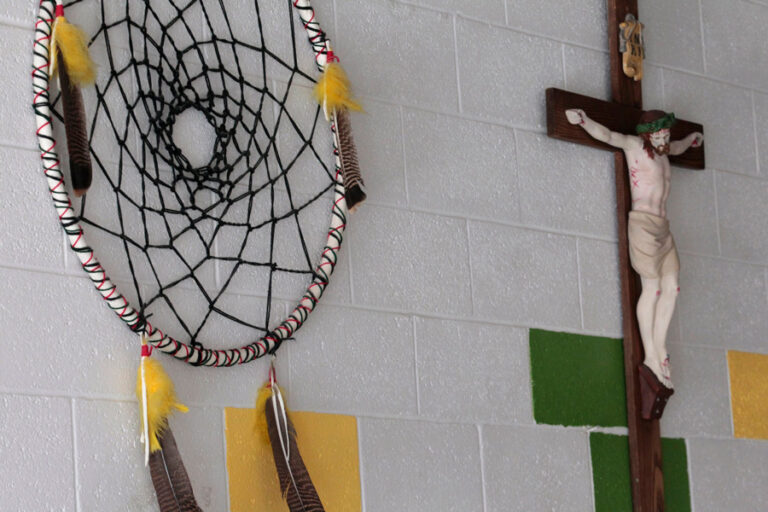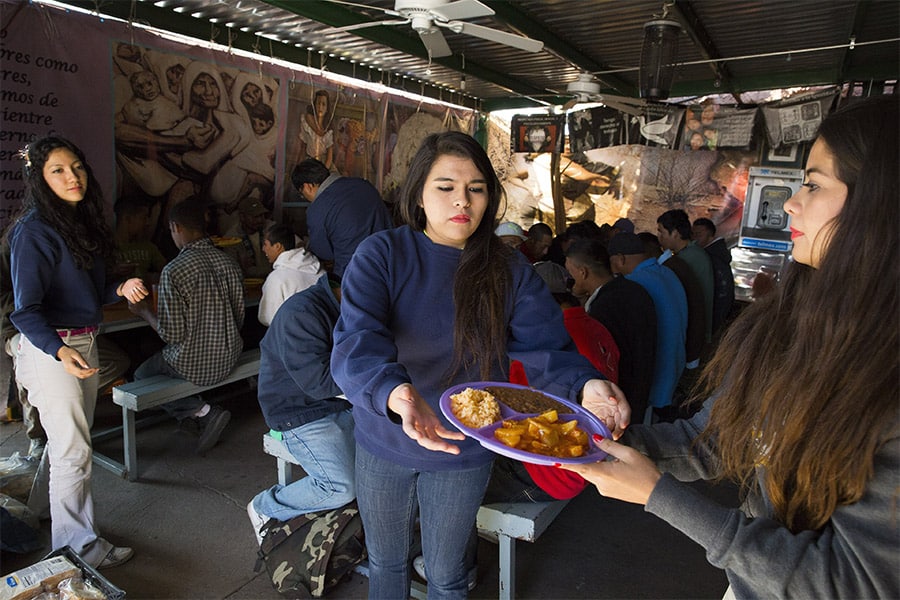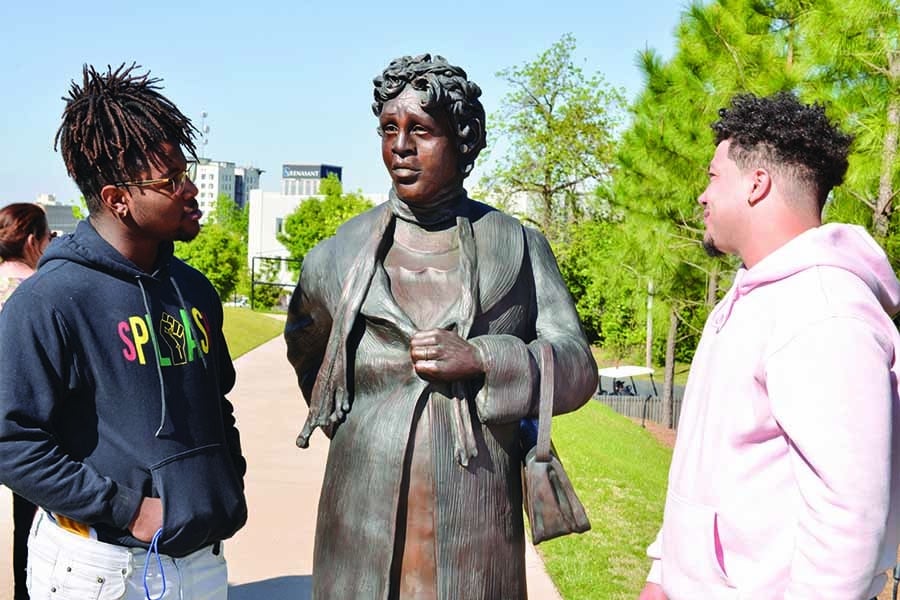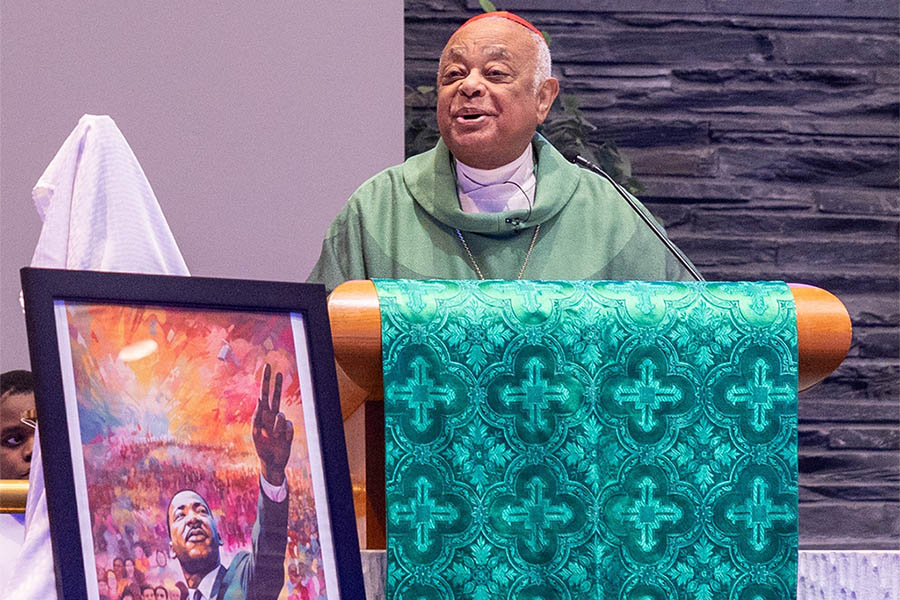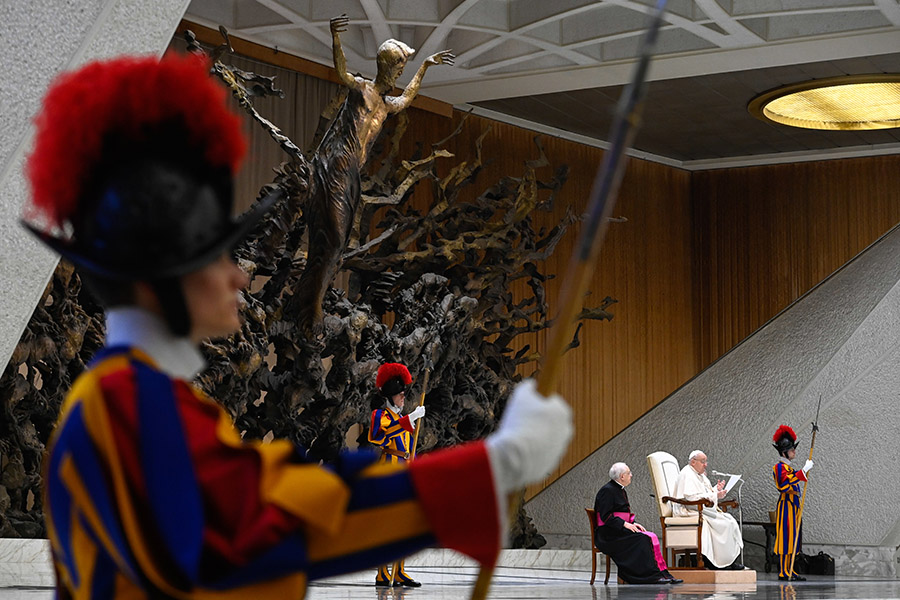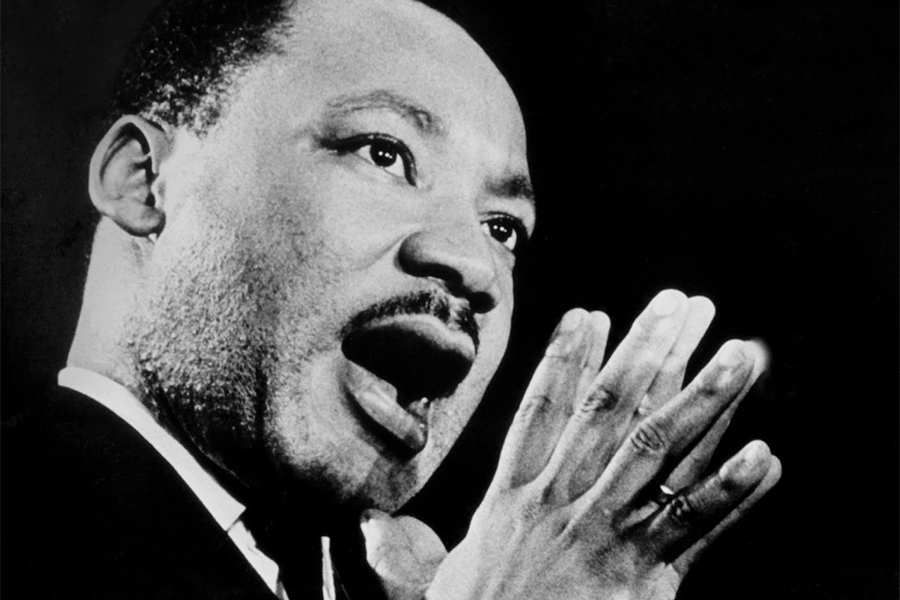WASHINGTON (CNS) — Two U.S. bishops have urged their fellow prelates to cooperate with any requests they receive from the federal government for an investigation on alleged abuses at tribal schools operated by church entities in the past.
In a Nov. 8 letter addressed to all U.S. bishops, Archbishop Paul S. Coakley of Oklahoma City, who is chairman of the U.S. Conference of Catholic Bishops’ Committee on Domestic Justice and Human Development, and Bishop James S. Wall of Gallup, New Mexico, chair of the USCCB’s Subcommittee on Native American Affairs, told prelates that “if the government asks for any records you may possess, we encourage cooperation.”

The letter comes in response to the U.S. Department of the Interior’s June 11 announcement of an investigation to look into the history of the government’s administration and funding of so-called “Indian boarding schools.” Some, but not all of the schools, were operated by entities affiliated with the Catholic Church and others were operated by other churches. A report on the investigation is due for release next April, the letter said.
The painful history of the country’s tribal schools has come to light recently as researchers have been focused on uncovering what many American Indians long have shared in their communities: abuses and deaths of American Indian children at boarding schools in the U.S., from the 17th century to the 20th century.
“Some were set up by famous missionaries and saints,” the Coakley-Wall letter said of the schools operated by Catholics. “However, there are many accounts, publicly reported with evidence, that the experience for many at these schools was very bad if not disastrous.”
The letter pointed out a detail raised by the Interior Department: “The purpose of the Indian boarding schools was to culturally assimilate Indigenous children by forcibly relocating them from their families and communities to distant residential facilities where their American Indian, Alaska Native and Native Hawaiian identities, languages and beliefs were to be forcibly suppressed.”
And in some cases, there was abuse that sometimes resulted in deaths. The most recent of these cases uncovered that at least 87 children died at such a facility, the Genoa U.S. Indian Industrial School, which operated in Nebraska from 1884 to 1934.
Earlier this year, the bodies of more than 200 children were found buried on the site of what was once Canada’s large Indigenous residential school. In some cases, children were reported missing from the facilities and were never found.
While entities affiliated with the Catholic Church ran some of the facilities, by the 1900s, about half were operated by solely federal government, “one quarter of the schools in partnership with entities of the Catholic Church, and another quarter in partnership with Protestant churches,” said the letter to bishops.
The extent of what happened is not known, but the letter said it hopes that “the government’s investigation may help to illuminate this,” while acknowledging that records may be missing or dioceses in the localities didn’t exist then.
“At the USCCB, we intend to cooperate with any requests from the government in connection to the investigation, and encourage you to do the same,” it said.
“To be clear, to the best of our knowledge, the USCCB, which traces its origins to a predecessor organization founded in 1917, never played any role in running these schools, never was a repository for records from the schools and currently has no such records,” the letter said. “The federal government houses its repository of records of the Catholic-partner boarding schools at the Marquette University Library.”
In addition to cooperating with providing records and any information the government requests, the bishops also asked their fellow prelates to “consider reaching out to tribal leaders, and begin, if you have not already done so, a dialogue about the schools that were historically in your areas.”
The federal program that first initiated the schools ended in 1969 and the church no longer operates such facilities but there are day schools on tribal reservations that “serve almost exclusively Indigenous students,” the letter said.
It added that the USCCB Subcommittee on Native American Affairs “has long been aware of the church’s involvement with Indian boarding schools and has been fostering dialogues with Indigenous communities and engaging in efforts to reconcile.”
But for the descendants of those who suffered in the schools “we are sensitive … that this is a very painful subject,” the letter said.
“If there is a way to help bring forward the truth about what happened regarding specific schools in your diocese, state or region, that could very meaningful,” it said.
Bishops also were given names of Catholic organizations willing to help develop listening sessions, including the Tekakwitha Conference, which the letter noted is the largest organization of Catholic Native and Indigenous peoples.
Others include, it said, the American Catholic Indian Schools Network, based at the University of Notre Dame, which is an organization of Catholic schools on reservations that has long worked on how best to serve Indigenous students and address the legacy of the boarding schools; and the Catholics for Boarding School Accountability, an organization of religious and lay individuals that are working on healing and reconciliation.
The letter also listed the Black and Indian Mission Office, based in Washington, as a resource and noted the USCCB’s Subcommittee of Native American Affairs “has done much work in this area” and is available to “lend support or consultation on any local effort.”
“The report in April of 2022 will likely bring to light some very troubling information,” the letter said. “It will be important to reach out in advance and form relationships, if not already existing, so that you and members of local Indigenous communities can be in a real and honest dialogue about reactions to the report and what steps are needed to go forward together.”
Being forthcoming with information “can be a meaningful step toward healing,” the letter stated.
“Although some of these dialogues may be uncomfortable or even painful, if we cling to the love and truth that is Jesus Christ, we can face any fears or shame that these situations may bring,” it continued.
“If we can hold our ancestors in the faith in loving memory, celebrating the good and also being honest and transparent about failures and sin, while seeing our Native and Indigenous brothers and sisters as fellow beloved sons and daughters of God,” it said, “then we firmly believe that this time can mark a step forward in the relationship between the church and Indigenous peoples, and can deepen respect for the dignity of every person and the common good.”
also see
Copyright © 2021 Catholic News Service/U.S. Conference of Catholic Bishops

